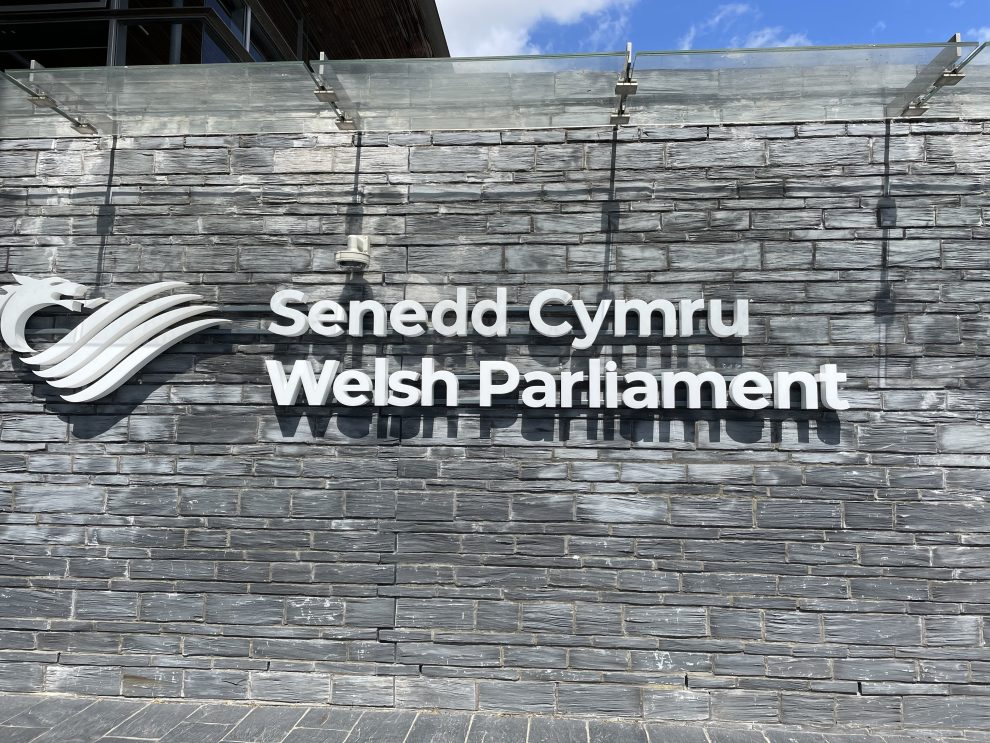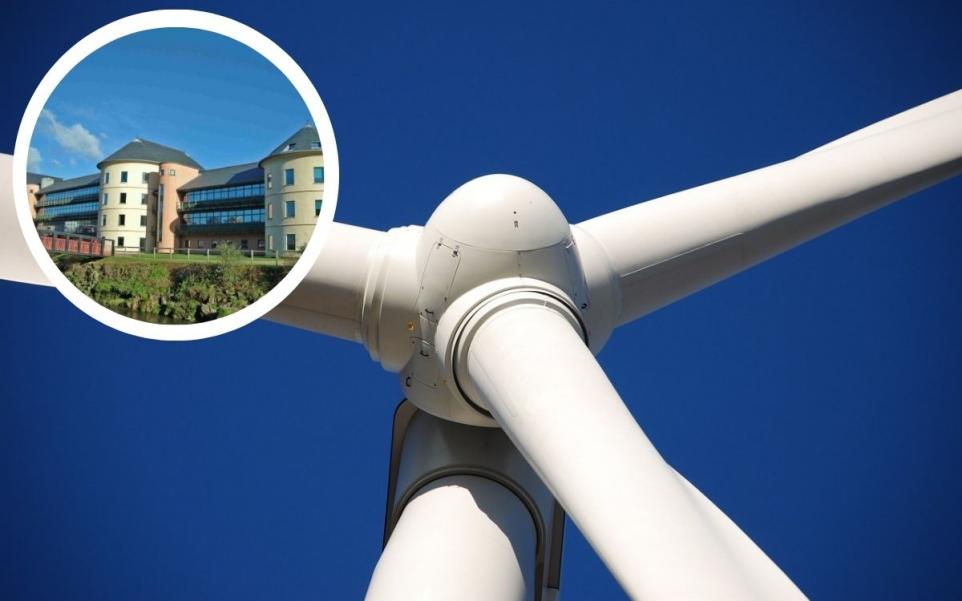Politics
Energy policy and the environment
 LAST WEEK The Herald looked at the energy market and the ways in which different parties have approached the question of rising domestic energy bills.
LAST WEEK The Herald looked at the energy market and the ways in which different parties have approached the question of rising domestic energy bills.
That article discussed the ways in which taking advantage of existing energy efficiency schemes and the use of the most competitive tariffs would reduce bills far more than a simple price cut on the most commonly used domestic tariff.
Labour has claimed it will create over 300,000 renewable energy jobs throughout the country and put modern low-carbon industries at the heart of a £500 billion investment strategy, championing ‘a new green industrial revolution’.
One of the big ideas underpinning that commitment is to promote the growth of local energy companies and support the development of 1,000 community energy co-operatives. That’s accompanied by a commitment to 65% renewable electricity by 2030, aiming for 85% as technology improves and diffuses.
All of which will sound very familiar to Plaid Cymru, whose Shadow Environment spokesperson, Simon Thomas AM, has called for the creation of Ynni Cymru to promote Wales’ own self-sufficiency in domestic energy. It sounds like Plaid’s clothes have been lifted by Jeremy Corbyn’s promises to invest in similar schemes and raise investment across the UK.
Labour has set out a radical commitment to set up publicly-owned energy supply companies in every region focused purely on cutting prices. Under the same proposals, Government would take ‘control of the natural monopolies of the transmission and distribution grids’ currently run by the National Grid.
The Labour leader has made big promises, and the cynical might think that Labour may as well shoot for The Moon, given the remote chances it has of forming an administration under Jeremy Corbyn as PM.
“We’ve got a real opportunity to drive the green economy – to have green jobs, green growth, and make sure that we have our share of the industries of the future. Clearly there’s the climate change agenda, where we’ve got to get back on track, both nationally and internationally. And third, there is the issue of energy security, which I think is vitally important, which we need to do a huge amount of work on.”
Those were big promises, too. They were made seven years ago by David Cameron at the outset of his first term as PM, when he pledged to lead the greenest government ever. By 2013, David Cameron was keen to ‘get rid of all the green crap’, as the hopes of 2010 smashed into the economic and political realities of Treasury austerity.
The rug was pulled from under the renewables industry: following through on the pledge to virtually ban onshore wind, and slashing the feed in tariff. Overall UK carbon emissions had been falling but the growth in renewables deployment stalled, and solar companies employing thousands of people around the country went bust.
Five years later, at the outset of his second term, David Cameron pulled the Green Deal for UK homes.
On every single one of those policy decisions, commitments, and staggering reversals Theresa May went along, bobbing along like a cork on the tide of Cabinet collective responsibility. The number of times she has spoken out on energy policy in public can be counted on the fingers of one thumb. However, she merged the Department of Energy and Climate Change into a new Department of Business, Energy and Industrial Strategy in July 2016.
While that suggests a rather less overtly ‘green’ approach to the PR side of politics than her predecessor, it is noteworthy that Theresa May has expressed consistent and strong positions on the issue of energy security. Her first noteworthy public policy decision was to initiate a pause on the development of Hinkley B, ostensibly due to concerns of increasing UK reliance on Chinese investment in its energy infrastructure.
In addition, in a complex and volatile international energy market, there are clear attractions for the PM in adopting measure which enhance energy security and the reduction on the reliance of overseas energy. Her concerns on energy supply were echoed in the 2015 Conservative manifesto, which said: ‘Without secure energy supplies, our country becomes less safe and less prosperous’.
And, in 2008, Mrs May said: “I am thrilled to see that after years of Conservative pressure, we have finally passed a necessary and ambitious piece of legislation on Climate Change. Britain is the first country in the world to formally bind itself to cut greenhouse emissions and I strongly believe this will improve our national and economic security.
“To stay reliant on fossil fuels would mean tying ourselves to increasingly unstable supplies which could endanger our energy security and the Climate Change and Energy Bills mark an important step for both the health of our economy and the health of our nation. It is now vital that we stick to these targets.”
The logic of Mrs May’s evident and consistently expressed concerns on security of energy supply is to make the UK more self-sufficient. There are two sides to that issues: firstly, the extension of green energy generation; secondly, the extension of fracking and nuclear power.
The second limb of that proposition is the most contentious. Fracking is a public relations disaster waiting to happen and the first time it is scheduled to take place in a Conservative-held marginal seat is when we will see just how committed the Conservative party is to its use. As for nuclear power, it requires considerable public support and subsidy to make it even marginally viable for the long term.
The only large energy project requiring anything like the level of price support as nuclear power is the Swansea Tidal Lagoon, which for all its carbon-saving claims involves quarrying stone in Cornwall, building new jetties extending into the Bristol Channel and transporting the stone over by barge to Swansea by the thousands of tonnes to build a tidal barrage affecting marine life and habitats across the whole of Swansea Bay.
For someone as sensitive to polls as Theresa May it is worth noting that the BEIS tracker surveys on consumer views shows significantly higher support for renewable energy (at around 75-80%) than for other options. Opposition to renewables was very low at 4%, with only 1% strongly opposed.
However, and this is where energy policies and political judgement come into play, support for renewables was lower amongst those in social grade DE (72%), aged 65+ (73%), and social renters (75%).
The first two of those groups are key electoral demographics whose support Theresa May is actively courting. The triangulation of Conservative policy on energy, which now appears to have abandoned the notion that competition delivers the best results for energy users, might not swing a lot of votes, but the Conservative leader will not be shy of using every gimmick in her arsenal to court wavering voters looking for a way to justify voting Conservative.
News
Too many children in Wales living in poverty – Lib Dems want action

THIS week in the Senedd, the Welsh Liberal Democrats renewed their demands for the implementation of child poverty targets.
According to a report from the Bevan foundation, 29% of children living in Wales are currently experiencing poverty (an estimated 190,000 children).
The same report highlighted that the largest percentage of children living in poverty are from working households or in couple households.
The Welsh Lib Dems are now renewing calls for the Welsh Government to create a set of targets for reducing child poverty, which the party argues will allow for more accountability.
The party has previously called for the implementation of targets, citing recommendations from the Calling Time on Child Poverty Report published in November last year.
Commenting, the Leader of the Welsh Liberal Democrats Jane Dodds MS said: “The latest statistics on childhood poverty in Wales paints a very distressing image of families across the country struggling to make ends meet.
Over the course of the last six years, the proportion of children in poverty has skyrocketed. Fuelled by worsening economic conditions and a complete lack of action from both governments in Westminster and Cardiff Bay.
We cannot act complacent about these figures nor accept the clear lack of progress in fighting child poverty, behind each statistic is a child that the state has failed.
It remains painfully clear that the Welsh Government is failing to make any meaningful progress in this fight, which is why they must follow through with the implementation of clear set targets that will allow for further accountability.
We as a party have continuously called for the creation of these targets and we will not be silenced. For the sake of future generations we urge the Welsh Government to listen.”
Education
Conservative calls for academies and free schools rejected by Senedd

THE SENEDD has rejected calls to introduce free schools and academies after a report found major challenges in Wales’ education system.
Tom Giffard led a Conservative debate on educational attainment, warning that Wales is consistently at the bottom of UK-wide league tables.
The party’s new shadow education secretary pointed to an Institute for Fiscal Studies (IFS) report on education in Wales which found low outcomes and high levels of inequality.
Mr Giffard told the Senedd the IFS report highlights the pitfalls of the Welsh Government putting all its eggs in the basket of a skills-based approach.
Criticising a failure to measure skills inequalities and pupil progress, he stressed that Wales’ lower performance is due to policy and approach rather than funding or the pandemic.
He said: “It seems the Welsh Government relies on Pisa results to tell the story but then, when those same results are all too disappointing, they are dismissed in equal measure.”
Mr Giffard, who previously worked in a primary school, said declines in Pisa results can be observed in almost every country that has adopted a skills-based approach.
Raising concerns about disappointing Pisa results, the South Wales West MS pointed out that Wales saw the lowest scores in the UK for every subject.
Heledd Fychan, Plaid Cymru’s shadow education secretary, warned that Wales’ schools are understaffed and facing difficult decisions due to budgets being at breaking point.
She criticised implementation of the Welsh Government’s additional learning needs (ALN) reforms, saying schools cannot realise the aims without the budget to bring them to life.
Ms Fychan said Plaid Cymru agreed with much of the Tory motion but her party would not support calls for free schools and academies.
Sam Rowlands described the IFS report as damning, warning that the Welsh Government’s education reforms have been disastrous and have widened inequality.
The Tory MS claimed the reforms are systematically holding back disadvantaged children, saying: “The most remarkable fact is that the performance of disadvantaged children in England is either above or similar to the average for all children in Wales.”
Mr Rowlands added: “The poorest in England’s schools are doing the same or better than the Welsh average, thanks to ambition, the academies and free schools.”
Samuel Kurtz, a fellow Tory, said free schools and academies have driven up standards in England as he argued a Wales roll-out provides an opportunity to improve outcomes.
James Evans, the Conservative MS for Brecon and Radnorshire, highlighted the party’s pledge to get 5,000 more teachers into Wales’ classrooms.
Buffy Williams, the newly elected chair of the Senedd’s education committee, said Wales is undergoing a profound transformation propelled by ALN and curriculum reforms.
The Labour MS for Rhondda stressed the importance of listening to teachers and allowing ample time for the reforms to take root in classrooms across Wales.
Altaf Hussain recounted a conversation he had this week with a headteacher at one of the largest schools in his South Wales West region.
The Conservative said: “The major improvements they have been delivering to attainment and addressing behavioural issues are all at risk because of cuts to funding.
“Vital work undertaken to improve the lives of young people with additional needs could be halted because they cannot afford to continue employing the support workers.”
Lynne Neagle recognised the scale and seriousness of work still ahead to improve Wales’ education system, stressing: “I am not, in any way, complacent about that task.”
Wales’ newly appointed education secretary, who takes over from Jeremy Miles, said sustained improvement in attainment will be among her top priorities.
She told the chamber: “My early focus has been to listen closely to schools and where it is clear that schools seek more scaffolding.”
Ms Neagle said the Welsh Government will work with trade unions and employers to reduce workload and eliminate unnecessary red tape.
The Conservative motion was voted down, 14-35, following the debate on April 24. The motion as amended by the Welsh Government was agreed, 26-23.
Climate
£1m turbine application to be decided by all councillors at County Hall

A TWICE-BACKED £1m scheme for a “20-storey-high” wind turbine at a Pembrokeshire mansion will have to be decided by all councillors.
Mr and Mrs Glen Peters of Western Solar Ltd are seeking permission for a single turbine on land near the Grade II-listed Rhosygilwen Mansion, which includes an arts and functions building known as Neuaddydderwen.
Members of the April meeting of Pembrokeshire County Council’s planning committee were recommended to refuse the scheme, despite backing it at their March meeting.
This backing meant the application returned to the April meeting for ratification after a ‘cooling off’ period; the application having been deferred at the January meeting pending a site visit.
It was initially recommended for refusal in January for several reasons, including potential harm to the setting of the Grade-II-listed house and grounds, and fears of threats to the safe operation of West Wales Airport at Aberporth in neighbouring Ceredigion, some 9.5 kilometres away.
The last concern was later withdrawn.
In papers ahead of the April meeting, officers, again recommending refusal, have said the scheme “would not protect or enhance the setting [of Rhosygilwen] but rather would result in significant harm to this interest of acknowledged importance”.
They have also warned any backing of the scheme against policy recommendations could set a precedent for similar developments.
-

 News6 days ago
News6 days agoPolice issue update on the search for Luke, missing from Pembroke Dock
-

 News1 day ago
News1 day agoPolice and air ambulances at ‘serious incident’ at West Wales school
-

 Sport7 days ago
Sport7 days agoHerbrandston clinch promotion to Division One
-

 News5 days ago
News5 days ago20mph U-turn: Some roads will return to 30mph following public outcry
-

 Community5 days ago
Community5 days agoMiracle pup finds her forever home after heart-wrenching journey
-

 Community2 days ago
Community2 days agoCounty Hall to offer space for community banking
-

 Crime1 day ago
Crime1 day agoPembrokeshire pensioner accused of 17 sexual offences against children
-

 Crime3 days ago
Crime3 days agoBrian Davis: Wanted on suspicion of commercial burglary

























